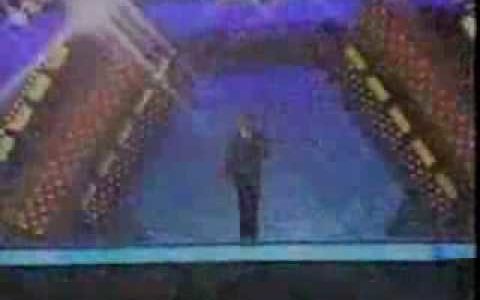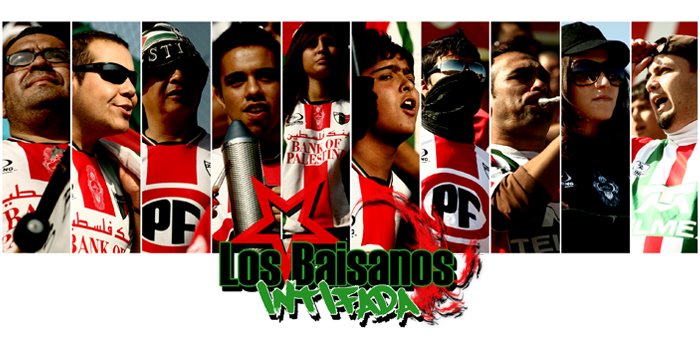001 – The Awful Spanish Language – Guess the Pronouns
Hampering this site, is my 40 year struggle with the Spanish language. A losing battle that I have been waging since high school There have been many casualties in this war. My grade point average suffered many losses.
Frankly, I have suffered LPTSD (Linguistic Post Traumatic Stress Syndrome) ever since.
The Spanish alphabet is easy. Differences with the English alphabet are minor. Both are Roman based alphabets.
Spanish spelling is easy. It is phonetic. Completely so. Almost no exceptions. Much easier than English, but such ease is only part of the deception.
SPANISH GRAMMAR IS A WAR CRIME,
Every single aspect of Spanish grammar is designed to defeat logic, infuriate the reader – or listener, and destroy neurons in the brain.
SPANISH GRAMMAR IS A WEAPON OF MASS DESTRUCTION
Were one to organize his though patterns in English the way the Spanish do in their own language, one would be diagnosed as bi-polar schizophrenic.
Think of it. About 600 Million people (in Latin America, Spain, Puerto Rico, and much of the United States) are daily walking around with psychotic thought patterns in their brains thanks to THE AWFUL SPANISH LANGUAGE!
Let us start off this series with a very simple example to illustrate my point.
It is a game the Spanish play every day called:
GUESS THE PRONOUN
Take this simple sentence that you want to translate:
I gave it to her.
Simple. Easy! Straightforward. There is no reason this should be difficult.
Ah ha! When you encounter the gremlins of Spanish grammar, this becomes a nightmare.
The correct translation is:
Se lo di a ella.
And if you look in a Spanish grammar, it will tell you this is how you translate: I gave it to her.
THEY ARE LYING!
What Se lo di a ella actually says is this:
(to an undetermined recipient) it gave to (her or she).
Yes, this is what it says:
(to an undetermined recipient) it give to (her or she).
THAT IS HOW YOU SAY IT IN SPANISH!
(to an undetermined recipient) it gave to (her or she).
(to an undetermined recipient) (Se) it gave to (her or she).
Se – can mean him, her, it, one, them, you, you (plural). Frankly, you have to guess who the undetermined recipient is.
Yet, that is exactly what the Spanish language requires.
Spanish leaves these thought mines buried in each sentence ready to explode as soon as you light upon it. You have to figure out who or what the pronoun is referring to. Now you, the average American reader, will struggle enough trying to keep up with a conversation as it moves along. You don’t need to figure what the pronoun means.
Many a time I was following a simple Spanish conversation – Say Don Francisco talking to the TV audience on Sabado Gigante (Giant Saturday), when all of a sudden a pronoun is uttered, my brain seizes, and all comprehension is lost.
Don Francisco on Sabado Gigante
The most watched TV show in history
I turn off the TV show and despair of every learning Spanish. That is the way it was in 1988 when I was watching Spanish TV and trying to learn Spanish for the third time in my life. That is the way it is, today.
(to an undetermined recipient) it (lo) gave to (her or she).
lo – In this case lo mean “it.” In other cases lo can mean “him,” or “the most,” Again, you have to figure it out.
And why shouldn’t you? say the Latins.
We Americans stole California and Texas from them, they think. We stole Puerto Rico from the Spanish, they claim. We have an embargo on Cuba. The British sunk their Armada.
Hey, I may be American, but my ancestors weren’t British. Don’t blame me for the Armada.
The Latins torture us with their grammar. It is revenge. Pure and simple.
(to an undetermined recipient) it (lo) gave to (her or she).
You will notice that lo meaning “it,” is placed before the verb not after the verb making it look like “it gave,” rather than “gave it.”
You will find in a later lesson, that the Latins play, FIND THE PRONOUN as well as GUESS THE PRONOUN.
There is no hard and fast rule about whether to put the object pronoun before or after the verb.
Frankly, the Latins put it wherever they feel like putting it, and usually where it is the most incomprehensible.
(to an undetermined recipient) it gave (di) to (her or she).
di – di is the first person singular of past tense of the Spanish verb (dar) “to give.”
Okay, but where is the subject pronoun in the sentence to tell you who was the giver?
Was it “I gave,” or “he gave,” or “you gave?” We know something was given. Who gave it?
Now, Spanish takes the pronoun torture to a new level.
They refuse to tell you. There is a Spanish pronoun for “I.”
“yo” means “I” in the Spanish language.
Most of the time they refuse to use it!
Why? Just to drive us, los yanquis (the Yankees), nuts.
The Spanish not only ask you to guess the meaning of the pronoun, they don’t even bother to tell you the pronoun whose meaning you are supposed to guess.
It is like a game of “Can you tell me what is in the box?” Only the Spanish don’t even let you look at the box.
Sometimes the verb tells you. In this case: di implies “I gave.” The verb conjugation clues you in.
But this is just to trick you. You relent and press forward, thinking the verb conjugation will help you; which is what they want to think.
Then they can hit you with more sucker punches.
hablaba can mean “I used to speak,” or “he used to speak,” or “she used to speak.”
In this case, the verb conjugation only compounds the confusion.
And there is no requirement for the Latin to assist you; other than he might have mercy on you, as your brain starts to fulminate with smoke fluming out through your ears, as you discombobulate from grammar overload.
The Latins are notorious for their cruelty, and don’t expect to be helped.
Why?
Why?! Because they hate us.
I would tell them, you can have Puerto Rico back, just change your **** grammar, will you?
They laugh. They have us right where the want us. Foaming at the mouth from incomprehension, and grammar induced psychosis.
a – a in this case means “to.” You might think this is the first straightforward and easy translation in this simple – or at least you thought it was going to be simple – sentence.
Not so fast. a can also mean a variety of things like “at,” or “on.” When a lands in the middle of an idiom, innocent civilians have been killed.
Finally we come to:
ella – ella can mean “she” or “her.” You have to guess.
There are rules for this in Spanish, supposedly. I have seen lists of pronoun charts in Spanish. And they would be helpful, in theory.
But most of the time, the Spanish never even use pronouns. So what does it matter?
But a final question arises.
(to an undetermined recipient) it gave to (her or she) (ella).
The intelligent reader – who is still capable of thinking, after this introduction – will notice that at the end of the sentence you are told it was given to her (or she). So why was there an undetermined recipient at the beginning of the sentence, if the recipient was determined at the end of the sentence.
This is where Spanish take grammar torture to infernal levels of Schadenfreude cruelty.
In Spanish, the undetermined pronoun for the indirect object is always required, the clarifying pronoun is not.
You can say: I gave it /Lo di → (lit. It [I] gave, with the I being understood by the verb conjugation)
But you cannot say I gave it to her / Lo di a ella
unless you add: (to an undetermined recipient) /Se
(to an undetermined recipient) I gave it to her.
Of course, what you are really saying is:
Se lo di a ella.
The Spanish absolutely requires that any and every sentence be constructed as confusingly as possible. It is a basic rule of grammar. If any sentence is clear, ideally there should be a way to make it ambiguous, preferably incomprehensible.
They like to say Spanish derives this grammar from Latin. Maybe so. I never studied Latin. I am sure I would have hated the Romans, had I been forced to study Latin. In fact, I am positive that most insurrections against the Roman Empire were the result of grammar.
I, myself, think this grammar was a trick of Jesuit fiends grinding the torture engines of the Inquisition. How could one even question the Inquisition’s methods, if one was incapable of even asking a question?
Today’s Closing Spanish Thought
I have only begun to touch on the horrors of the Spanish pronoun. There is more villainy to come.
And with the Spanish language, you won’t know who it came from, or where it was going.
May 5, 2021 – Edited: Made mobile friendly.
August 25, 2024 – Edited: Added clarification.




